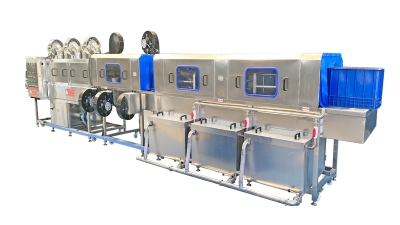Navigating the Challenges of Commercial Chicken Fryer Machine Efficiency
Table of Contents
- Identifying Key Performance Indicators for Chicken Fryer Machines
- Understanding the Impact of Temperature Control on Frying Efficiency
- Exploring Energy Consumption Patterns in Commercial Frying Operations
- Best Practices for Maintenance to Enhance Fryer Longevity and Performance
- Innovative Technologies Revolutionizing Chicken Fryer Efficiency
- Comparative Analysis of Top Brands: Which Fryer Maximizes Output?
- Maximizing Efficiency: The Economic Impact of Automatic Industrial Metal and Plastic Crate Washers on Food Industry Operations
- FAQS
- Conclusion
- Related Posts
You know, the demand for really efficient food processing equipment isn’t slowing down anytime soon, especially in busy commercial kitchens where speed is everything. I came across a recent industry report that says the global market for commercial fryers is expected to grow around 5.2% annually from 2021 to 2028. That just goes to show how much restaurants, food trucks, and catering services are leaning on specialized machines to keep things running smoothly.
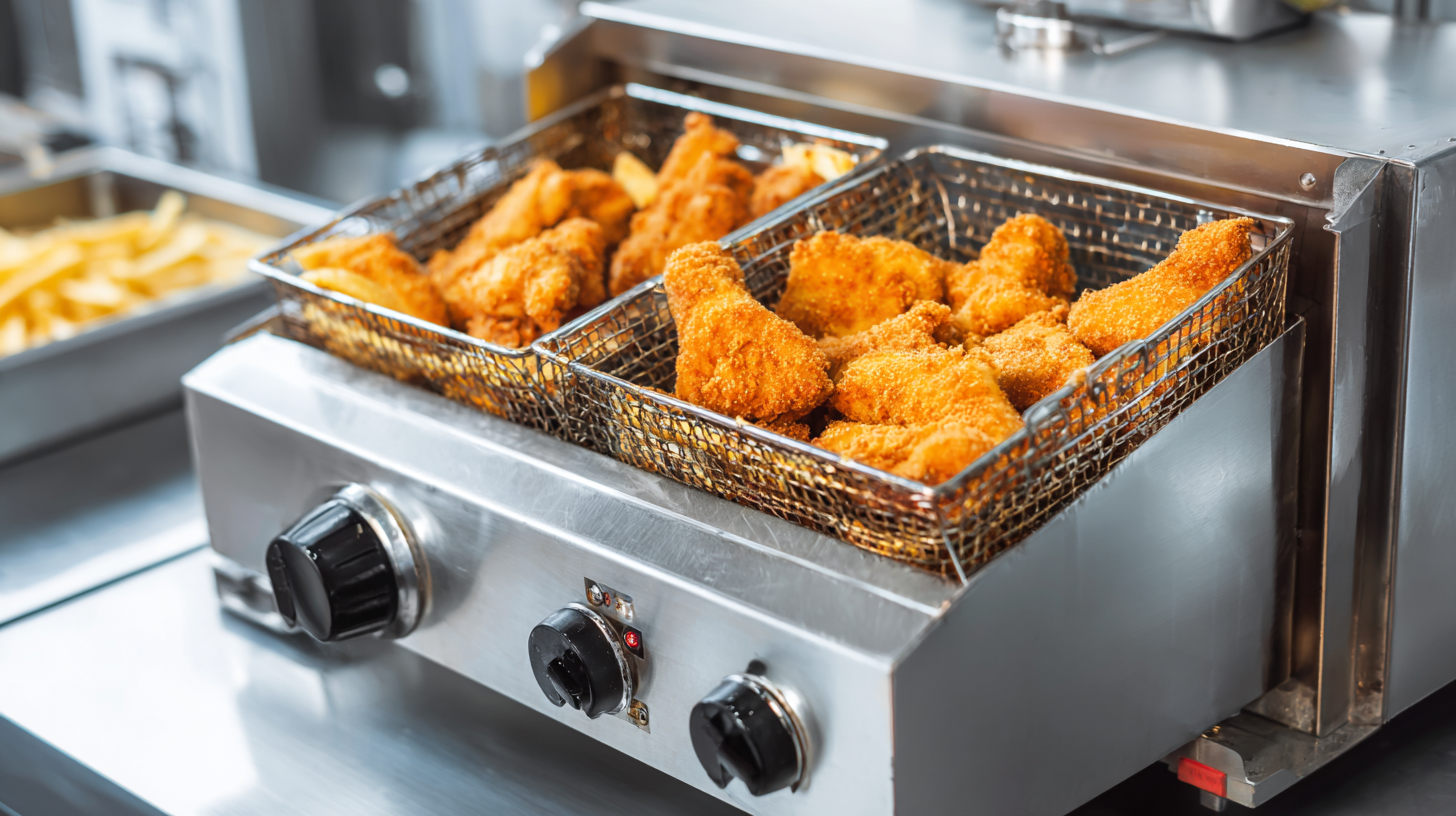
One piece of equipment that’s really gaining popularity is the commercial chicken fryer. It’s pretty much become a must-have for places looking to speed up their frying, all while keeping the flavor consistent and quality high. Companies like Shandong Kexinde Machinery Technology Co., Ltd. are leading the charge here — they’re experts in designing and making food machinery.
When businesses understand what it takes to keep their chicken frying game efficient, they can really boost productivity and keep customers coming back for more, even in this super competitive scene.
Identifying Key Performance Indicators for Chicken Fryer Machines
When you're dealing with commercial chicken fryers, it’s super important to keep an eye on the right performance indicators—kind of like your recipe for success. These KPIs usually include things like how much you can cook at once, how much energy it uses, how accurately it keeps the temperature steady, and how well the oil gets filtered. If you stay on top of these numbers, you can spot where things might be off and make improvements. That means your operation runs smoother, wastes less, and you get better results overall. Shandong Kexinde Machinery, a well-known player in the food equipment world, really stresses how important these factors are when designing their machines.
Getting perfect fried chicken isn’t just about cooking it fast; it’s about finding that sweet spot between cooking time and keeping the chicken delicious and crispy. Top-notch fryers, especially those with modern tech, offer precise temperature controls and quick recovery times — essential for busy restaurants or professional kitchens. At Shandong Kexinde, they focus on making fryers that don’t just meet these performance goals but also prioritize safety and user-friendliness. Basically, they want to give businesses a reliable, easy-to-use solution for all their frying needs.
Understanding the Impact of Temperature Control on Frying Efficiency
When it comes to commercial chicken fryers, temperature control is a big deal. It really affects how quickly the chicken cooks and how much oil you end up using. According to the folks over at the National Restaurant Association, the sweet spot for frying chicken is somewhere between 350°F and 375°F. Keep the temperature within this range, and you'll get evenly cooked chicken with that perfect golden-brown crust — it just makes the food taste way better and gives it that nice texture everyone loves. But if the temp swings too low or too high, things can go downhill — chicken might take longer to cook or, worse, still end up underdone, which can slow down your kitchen and leave customers less than thrilled.
On top of that, many industry reports point out that sticking to the right temperature can cut down oil usage by up to 30%. When you keep things steady, the oil doesn’t get broken down as quickly because it’s not subjected to unnecessary heat. That means fresher-tasting food and the oil lasts longer, which definitely saves money in the long run. Plus, poor temperature control can boost your energy bills by around 15-20%. So, investing in a high-quality fryer with reliable temperature controls isn’t just a fancy upgrade — it’s pretty much essential for a busy kitchen trying to stay efficient and keep customers happy.
Exploring Energy Consumption Patterns in Commercial Frying Operations
In the fast-paced world of commercial frying, managing energy consumption is a big deal for operators trying to stay efficient and keep costs in check. It’s pretty important to understand how these chicken fryers use energy, especially if you want to optimize how they perform. These machines tend to run at really high temps for long stretches, which can rack up some serious energy use. By keeping an eye on their energy patterns, businesses can spot the busy times when these machines are sucking up the most power and tweak their frying schedules a bit—simple changes that can cut down on wasted energy.
On top of that, the design and tech behind these fryers really matter when it comes to saving energy. Newer models with better insulation and smarter heating systems make a huge difference compared to the older, basic ones. If you’re thinking about upgrading your equipment, it’s worth looking into fryers that have energy-saving features and smart controls—these can help you manage energy use better during those hectic rush hours. By focusing on these little things, commercial kitchens aren’t just working more efficiently, but they’re also helping out with sustainability. Plus, they get to keep serving up that perfectly fried chicken without crushing their energy bills or harming the planet. Win-win, right?
Best Practices for Maintenance to Enhance Fryer Longevity and Performance
Keeping your commercial chicken fryer in top shape is super important if you want it to perform well and last longer. One of the best ways to do this is by doing regular maintenance based on how the machine’s condition is actually looking—that way, you can catch issues early and schedule repairs just when you need to. It’s a smart move that helps cut down on downtime, keeps everything running smoothly, and ends up giving you better food quality while also saving on energy bills.
Plus, using newer tech like AI can really change the game. With advanced tools, you can spot patterns in how your fryer’s acting and even predict problems before they happen. Real-time data means you can tweak your maintenance schedule on the fly, which lowers the chances of unexpected breakdowns—that’s a huge relief!
And let’s not forget about energy efficiency. Running your fryer in a smarter, more eco-friendly way doesn’t just help the planet—it also saves you money in the long run. All these tips really add up to keeping your equipment reliable and effective over time, making your life a lot easier and your operation more successful.
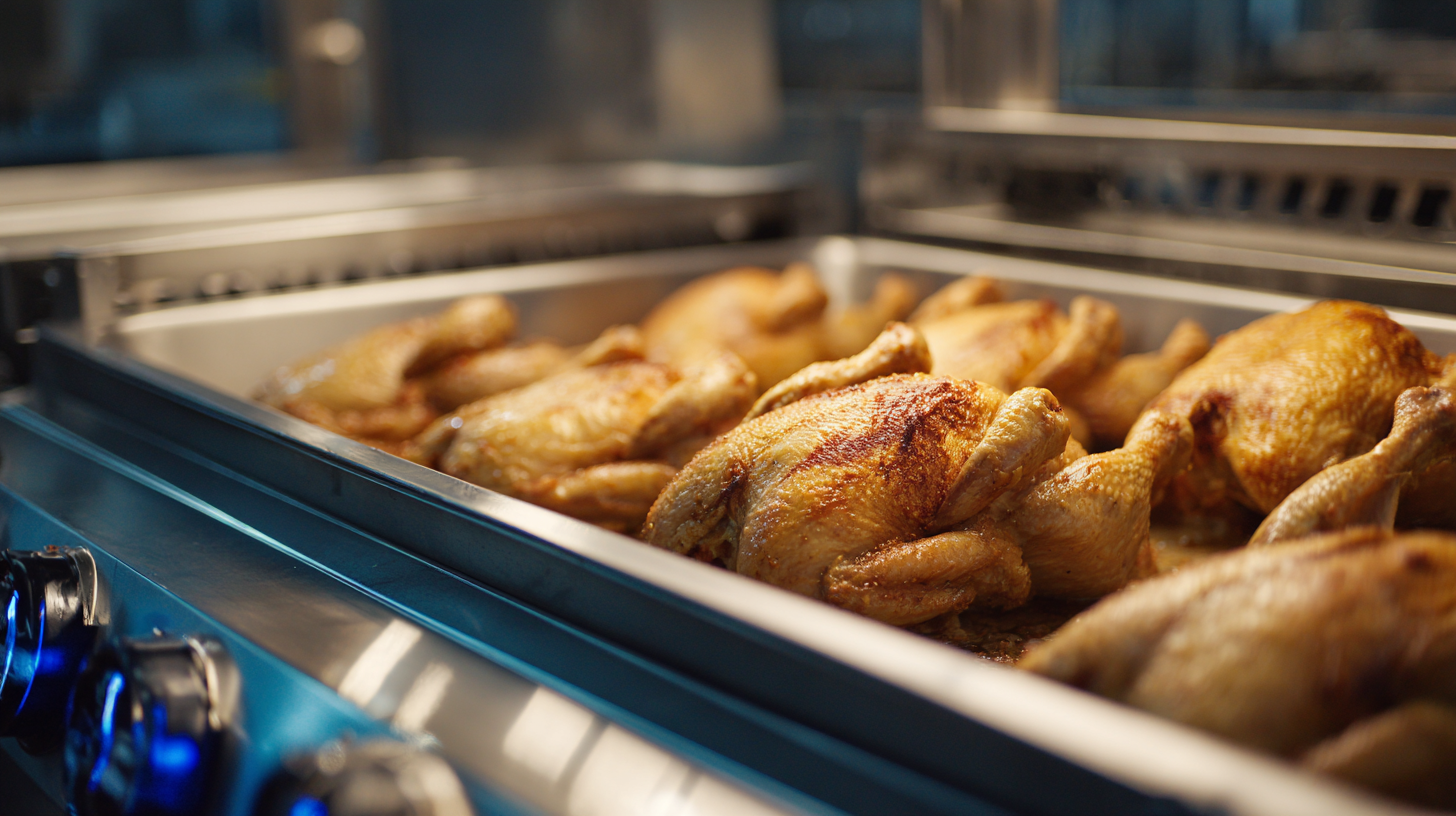
Innovative Technologies Revolutionizing Chicken Fryer Efficiency
These days, innovative tech is really making a difference when it comes to commercial chicken fryers. Not only does it help cut down on operating costs, but it also keeps food quality high. I read somewhere that, according to the National Restaurant Association, good equipment can slash cooking oil use by up to 30%. That’s a pretty big deal for restaurants trying to save a buck. Today’s advanced frying systems even come with oil filtration setups—these things make the oil last longer, which means less waste and a more even fry on the chicken.
And it gets even cooler with smart fryer tech. Some of these fryers are connected to the Internet, so managers can check temperatures and cooking times on their phones or tablets in real time. A recent report from Technomic mentioned that places using these smart fryers saw their energy costs drop by about 20%. Plus, these systems help keep everything consistent—no more guesswork—and they give restaurant owners data that can help them manage inventory and resources better. As the food industry keeps innovating, jumping on these new tech trends is pretty much essential for restaurants that want to stay competitive and serve up top-notch food.
Navigating the Challenges of Commercial Chicken Fryer Machine Efficiency
Comparative Analysis of Top Brands: Which Fryer Maximizes Output?
When it comes to getting the most out of commercial kitchens, the efficiency of chicken fryer machines really can make or break things, you know? I read somewhere—IBISWorld, I think—that the industry for commercial cooking equipment has been growing steadily at about 3.1% each year over the last five years. A lot of this is due to tech getting smarter and new designs being more energy-friendly. Because of all that, restaurants and foodservice businesses are now really paying close attention, comparing different brands carefully to find stuff that not only handles their cooking volume but also helps them keep productivity high.
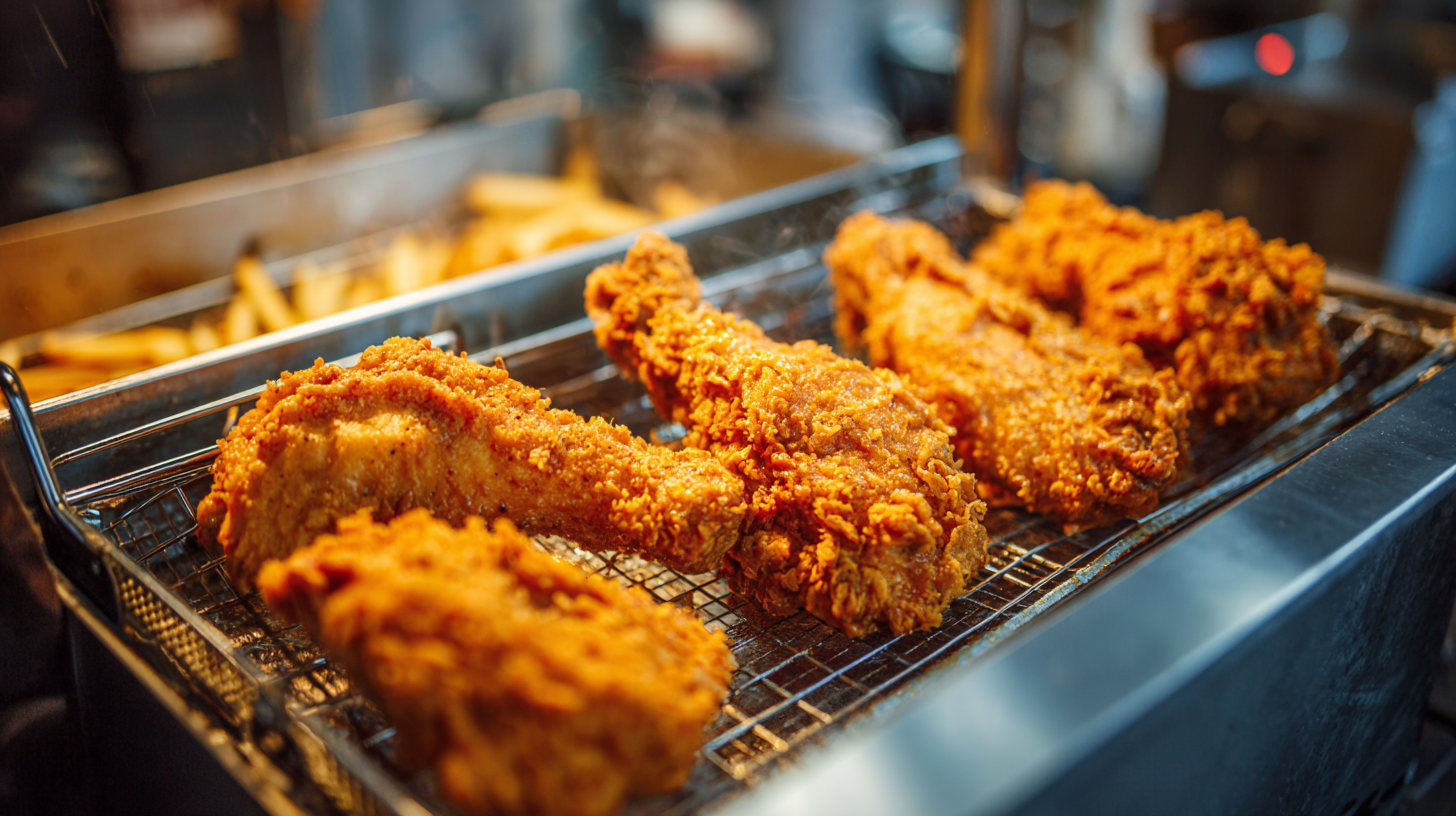
Now, one brand that’s been making waves in this crowded field is Shandong Kexinde Machinery Technology Co., Ltd. They’re pretty specialized, focusing on innovative designs that make frying more efficient and cut down on energy costs. Honestly, studies now show that modern fryers can hit efficiency rates of up to 90%, which means faster cooking times and less oil used—pretty impressive, right? When you look at the big players out there, Kexinde’s machines stand out because they offer really precise temperature control and quick recovery times.
Those features are a lifesaver during busy rush hours—they help keep the food quality high and speed up service. With so many food businesses feeling the squeeze to run more smoothly and efficiently, picking the right fryer can definitely be a game-changer, and those little details matter a lot in the end.
Maximizing Efficiency: The Economic Impact of Automatic Industrial Metal and Plastic Crate Washers on Food Industry Operations
In the food industry, maximizing operational efficiency is crucial for maintaining profitability and ensuring high standards of hygiene. Automatic industrial metal and plastic crate washers play a vital role in this regard by streamlining the cleaning process of various containers used in the sector. These advanced washing systems are designed to handle a wide array of items, including plastic crates, tray boxes, and baskets, commonly found in nurseries, meat, vegetable, and fruit processing environments. By automating the washing process, businesses can save valuable time, reduce manual labor, and minimize the risk of contamination, all while ensuring that their packaging is sanitized and safe for use.
The versatility of crate washers extends beyond traditional food storage crates. They are also effective for cleaning stainless steel trays used in hospitals and food service operations, as well as other industrial containers like plastic pallets and hardware trays. This multifunctionality not only enhances efficiency but also reduces the need for multiple cleaning units across different departments, leading to significant cost savings over time. As the food industry continues to evolve, the investment in automatic crate washers represents a forward-thinking approach that aligns with both economic and health-related demands. Embracing such technology is essential for food producers aiming to stay competitive in an increasingly demanding market.
FAQS
: The key performance indicators for commercial chicken fryer machines include cooking capacity, energy consumption, temperature control accuracy, and oil filtration effectiveness.
Efficiency is crucial in chicken frying as it involves achieving an optimal balance between cooking time and maintaining the quality of the fried product.
Regular condition-based maintenance minimizes downtime and ensures that the fryer operates at peak performance, leading to improved food quality and reduced energy costs.
Advanced technologies such as generative AI can identify patterns in machine performance, predict potential failures, and optimize maintenance schedules based on real-time data.
Innovative technologies, including efficient oil filtration systems, can reduce cooking oil consumption by up to 30%, leading to significant savings for restaurants.
Smart fryer technology incorporates IoT features to monitor temperatures and cooking times in real-time, resulting in a 20% decrease in energy costs and enhanced consistency of cooked products.
Data analytics from advanced frying systems provide insights that inform better inventory and resource management, helping businesses operate more efficiently.
Proactive maintenance strategies help identify issues before they lead to breakdowns, ensuring reliability and effectiveness of the frying equipment over time.
High-performance fryers are designed with safety and ease of use in mind, ensuring that they provide a reliable solution for professional kitchens while minimizing risks.
Businesses should embrace innovative technologies to remain competitive, enhance operational efficiency, and consistently deliver high-quality offerings in the evolving food service industry.
Conclusion
In the fast-paced world of the food industry, getting the most out of your Chicken Fryer Machine isn’t just about making good fried chicken — it's a key part of keeping your business profitable and running smoothly. In this post, I’ll walk you through some crucial stuff, like how to spot the right performance indicators to get perfect fry results, how important temperature control really is for efficiency, and even how energy use can impact your overall costs. Oh, and I’ll also share some tips on maintenance — you know, keeping your fryer in top shape so it lasts longer and works better.
We’re also diving into some of the coolest new tech out there that could seriously change the game when it comes to frying chickens, plus a quick look at some of the top brands. This way, you can see which fryers are really worth your money and will give you the best results. As a manufacturer committed to quality, Shandong Kexinde Machinery Technology Co., Ltd. totally gets how these factors play into making high-performance food equipment that can meet all kinds of industry needs.
Related Posts
-

Unlocking Efficiency in Warehousing with the Best Automatic Pallet Washing Machine Insights and Strategies
-
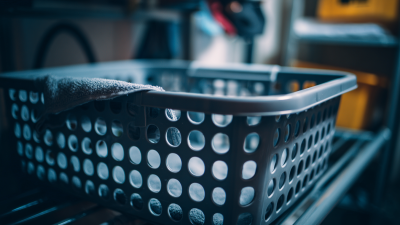
Common Issues Faced with Plastic Basket Washing Machines
-

Ensuring Quality Standards in the Best Chips Fryer Machine Production for Global Buyers
-
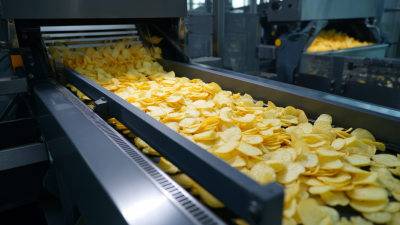
The Future of Efficient Frozen French Fries Production Technology
-

7 Essential Tips for Choosing the Best Automatic Potato Chips Machine for Your Business Growth
-

Explore the Advanced Technical Specifications of the Best Fully Automatic Potato Chips Machine


